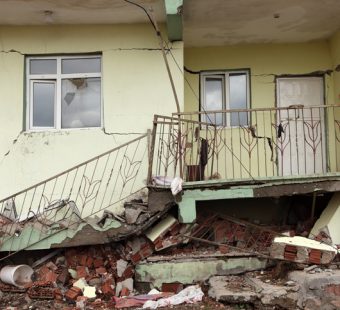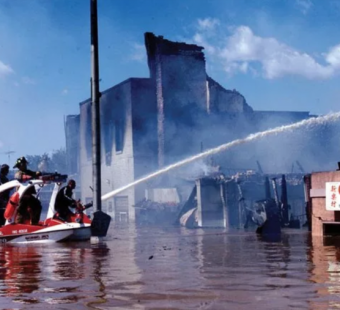
Learning to stay safe during heat waves
By Maria Sassian, 7/9/2021
This week, temperatures in Lapland, the home of Europe’s Santa Claus, reached a record-level 92.5 degrees Fahrenheit, and Antarctica and New Zealand are also reporting record heat this summer.
Heat waves around the world are exacerbating drought conditions, increasing wildfire risk, and leading to loss of property and crops, but the death toll from heat waves is also staggering. Globally, more than 166,000 people died due to heatwaves from 1998-2017, according to the World Health Organization, including more than 70,000 who died during the 2003 heatwave in Europe.
This summer, authorities have been investigating hundreds of deaths in normally cool regions of the U.S. Northwest and Canada, connected to an unprecedented heat wave. Temperatures in Oregon reached 117 degrees on June 28, and at least 107 people died in the state since June 25.
And extreme heat may be a more frequent occurrence in the years to come according to a team of research scientists who released a study finding that the odds of heat waves like the one in the Pacific Northwest occurring somewhere in the world in any given year could increase as much as 20 percent in due to the effects of climate change.
The study, which has not yet been peer reviewed, hypothesizes that our climate is reaching a point at which just a relatively small rise in global temperatures could greatly increase the likelihood of a big jump in extreme heat.
These recent developments provide a new sense of urgency to the need for everyone to add extreme heat safety awareness to their tool kit of emergency preparedness skills. The elderly and children are particularly at risk for heat exhaustion. Here are a few tips for staying cool during a heat wave from ready.gov:
If you are under an extreme heat warning:
- Find air conditioning. Public cooling centers are available in many areas
- Avoid strenuous activities
- Wear light clothing
- Check on family members and neighbors
- Drink plenty of fluids
- Watch for heat cramps, heat exhaustion, and heat stroke
- Never leave people or pets in a closed car
- Try to keep your home cool
- Do not rely on a fan as your primary cooling device
- Cover windows with drapes or shades
To prepare in advance:
- Weather-strip doors and windows
- Use window reflectors, such as aluminum foil-covered cardboard, to reflect heat back outside
- Add insulation to keep the heat out
- Use an attic fan to regulate the heat by clearing hot air
- Install window air conditioners and insulate around them
- Learn to recognize the signs of heat illness



